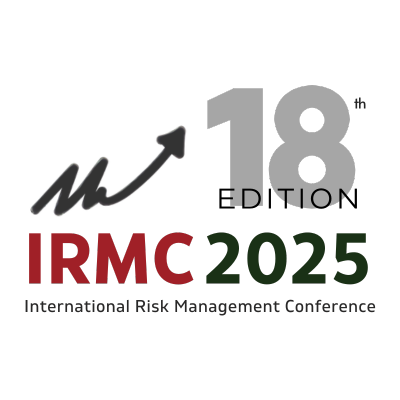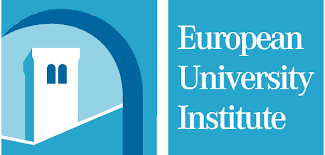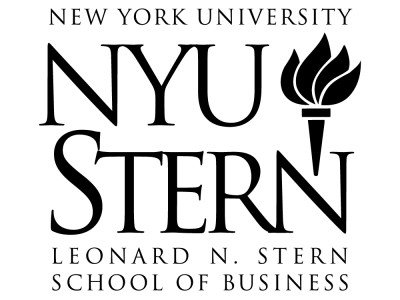
- Home
- IRMC
- About The Conference
- Conference Topics
- Call for Papers
- Keynotes & Featured Speakers
- Best Paper Awards IRMC2025
- IRMC Best Paper Awards – WINNERS
- Conference Fees
- Conference Fees 2025
- Paper Submission
- Past Conferences
- Keynotes & Featured Speakers IRMC2023 – Florence, Italy
- Keynotes & Featured Speakers IRMC2022 – Bari, Italy
- Keynotes & Featured Speakers IRMC2021 – Cagliari, Italy
- Keynote & Featured Speakers IRMC2020 – Virtual conference, online
- Keynote & Featured Speakers IRMC2019 – Milan, Italy
- Keynote & Featured Speakers IRMC 2018 – Paris, France
- Keynote & Featured Speakers, IRMC 2017 – Florence, Italy
- Keynote Speakers, IRMC 2016 – Jerusalem, Israel
- Conference Program
- Registration 2025
- Organizers
- Publications
- Travel & Lodging
- Plenary Online Registration
Institutions
International Risk Management ConferenceUniversity of Florence
The University of Florence is an important and influential centre for research and higher training in Italy, with 1,800 lecturers and internal research staff, 1,600 technical and administrative staff, and over 1,600 research assistants and doctoral students.
It offers a wide range of study programmes at various levels and in all areas of knowledge.
126 Degree courses (First and Second Cycle, corresponding to Bachelor’s and Master’s Degrees) organised in 10 Schools, with a population of about 51,000 enrolled students, one-fourth of which come from outside of Tuscany.
There are over 9,000 degrees awarded each year in Florence. According to the alumni data, the percentage of students who are in the workforce one year after their First Level degree is above national average.
The University of Florence has a natural international vocation and the development of internationalization is one of its strategic priorities.
It is one of the largest and most productive public research systems in Italy. This result is accomplished thanks to the number of permanent and temporary researchers working in a wide range of disciplinary and scientific fields, and the numerous junior scientists in training. It is also due to an intensive participation in research programmes of national and international relevance and to the significant scientific results achieved. External funds support the research and knowledge transfer activities. This combination of factors qualifies the Florentine institution as a modern research university and accounts for its excellent position in national and world rankings. Researchers at the University of Florence operate within 24 different departments and have at their disposal approximately 40 research structures comprising inter-departmental and inter-university centres as well as specialised research, knowledge transfer and advanced training centres.
In recent years the University of Florence has increasingly consolidated its ventures in the field of knowledge transfer: from the filing of patents to the setting up of joint workshops with businesses, through to participation in spin-off companies.
Knowledge transfer activities are coordinated by CSAVRI (Centro di Servizi di Ateneo per la Valorizzazione della Ricerca e la gestione dell’Incubatore universitario), the centre for the enhancement of research and management of the university’s incubator.


European University Institute
The EUI was born out of an atmosphere of cooperation, with notable advocacy for a European institute at the Hague Conference in 1948 and the European Cultural Conference the following year.
Other priorities persisted however until the 1955 Messina Conference; a series of constructive talks responding to the widening of Europe. With all six members of the European Coal and Steel Community (ECSC) present, the German Secretary of State Walter Hallstein took the opportunity to call for a training centre for nuclear sciences. This was proposed under the Euratom Treaty which had established Europe’s atomic energy community; Hallstein’s vision would create an instrument of integration and move away from the nationalism of the past.
The Italian government was enthusiastic and, recognising an academic need to study Europe, made determined action along with the European Commission and the European Parliament. However it was not until over a decade later that the idea began to bear fruit, when in 1969 leaders met in The Hague and resolved to fund a European University Institute (EUI) in Florence. By this point the idea had evolved from a centre for nuclear sciences to one focused on the human sciences, promoting a cultural exchange between member states.
Plans were put into motion with conferences in Florence and Rome in 1970 and 1971, when it was decided that the Institute would be reserved for post-graduate studies and not directly a Community institution.
The six member states – Belgium, France, Germany, Italy, Luxembourg and the Netherlands – signed a convention in 1972 which cemented their commitment to creating the EUI as a pillar for research and development. The following year Denmark, Ireland and the United Kingdom joined the Community and became involved in founding the Institution.
The EUI opened its doors to its first 70 researchers in 1976. Over nearly 40 years the Institute has grown to incorporate academics from across the globe, spanning borders and staying true to its mission laid down in the 1970s: To “foster the advancement of learning in fields which are of particular interest for the development of Europe”.
Reflecting the growth of the European Union, the Institute now has 22 member states: Austria, Belgium, Bulgaria, Cyprus, Denmark, Estonia, Finland, France, Germany, Greece, Ireland, Italy, Latvia, Luxembourg, the Netherlands, Poland, Portugal, Romania, Slovenia, Spain, Sweden and the United Kingdom.

NYU STERN
Key Facts: Academic Year 2015-2016
Total Enrollment*
- Bachelor of Science: 2,575
- Full-time MBA: 799
- Langone MBA for Working Professionals: 1,540
- Executive MBA: 243
- TRIUM Global Executive MBA: 130
- MS in Global Finance: 49
- MS in Risk Management for Executives: 49
- MS in Business Analytics: 61
- PhD: 105
Faculty*
- Total: 336
*Preliminary data as of September 2015
Fast Facts
- NYU Stern has three Nobel Prize winners who are active on the faculty.
- NYU Stern is ranked #4 in the world for its research productivity.¹
- Social Science Research Network rates NYU Stern #1 among the top 1,000 US business schools for new downloads of research within the past 12 months. (as of February 2016)
- Stern’s global alumni community includes 100,000+ members in more than 125 countries.
The University of Udine was founded in 1978 as part of the reconstruction plan of Friuli after the earthquake in 1976. Its aim was to provide the Friulian community with an independent centre for advanced training in cultural and scientific studies. The University currently has 10 faculties in: Agriculture, Economics, Engineering, Law, Foreign Languages, Education, Humanities, Medicine and Surgery, Veterinary Science and Mathematical, Physical and Natural Sciences.
The University is actively involved in student and staff exchange projects with universities within the EU and is currently engaged in close collaboration with several universities from Eastern Europe and other non-EU countries. Moreover the University participates in many research projects at national and international level. The present number of students enrolled at the University is approx. 17000.
For further information about studying at Udine please see the Faculty of your choice, or contact the CORT for academic career guidance.
If you plan on visiting the University of Udine as an exchange student as part of an approved exchange scheme such as Erasmus, Leonardo, Alpe-Adria, Florence Nightingale, Bi-lateral agreements or other similar project please contact the International Student Service Office.
If you plan on visiting the University of Udine as an exchange professor/lecturer as part of an approved exchange scheme such as Erasmus, Bi-lateral agreements or other similar project please contact the International Relations Office.
